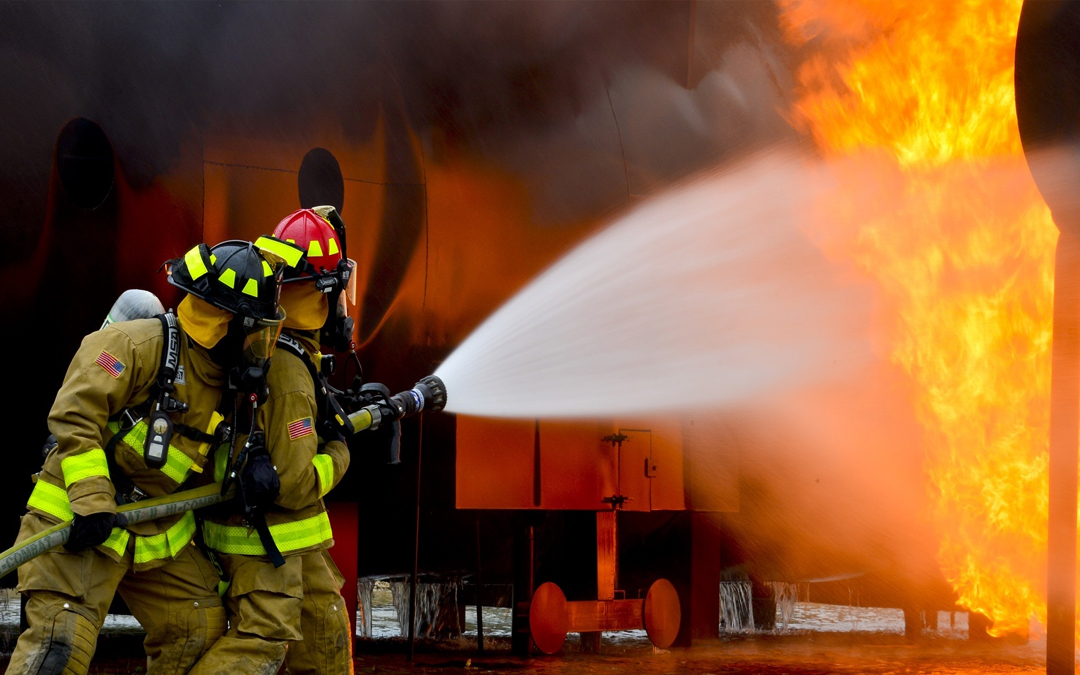The outbreak of a fire can have devastating consequences for your property. In the best case scenario, the only casualties are material items, whether these are personal belongings, furniture or business assets. In the worst case, human lives can be put at risk.
Fire prevention doesn’t have to be a chore. In many cases, following a few simple steps is all it takes to keep your friends, family and employees safe.
1. Use electrical sockets responsibly.
As we rely more and more on technology to improve our qualities of life, overburdened plug sockets become an increasing fire risk. Multiple-body households and shared residencies place particular pressure on electrical sockets, as do businesses with a heavy reliance on portable technology.
Prioritise your chargeables, and do not leave items charging for longer than necessary. This will help to relieve the burden on electrical sockets while prolonging the battery life of the chargeables themselves.
2. Keep electrical items away from water.
It is common knowledge that electricity and water do not mix. In most cases, modern electricals come waterproofed as standard, but this should not be taken for granted.
Apply common sense when bringing electricals into a water environment.
3. Dispose of cigarettes with caution.
Despite health warnings, many of us continue to enjoy cigarettes as part of our daily routine. It is easy to overlook the fire risks that cigarettes pose, but it remains true that cigarettes are the single greatest cause of fire deaths in the home.
Ensure your cigarette is properly stubbed out before you dispose of it. Scraping it against a rough surface or dousing the tip are the most effective means of killing the heat.
If you would like to quit smoking visit NHS Smoke Free.
4. Turn off electrics after use.
Electrical appliances are no longer the luxury items they used to be. Everything from widescreen televisions to toasters and hair straighteners are standard household fares now. As a result of this, it is easy to forget that we have left them on.
Electricals are prone to overheating. Many modern systems come with defences to neutralise this effect, but these are not fail-safe. Don’t risk your property by being careless.
5. Install smoke alarms.
Should a fire break out on your property, early warning can mean the difference between a small fire and a condemned building.
Smoke inhalation is the most common cause of death in house fires; by detecting the signs of smoke early, smoke alarms give you the time you need to vacate the premises and contact the emergency services.
Property and lives can be saved as a result of these simple devices. Test them regularly and plan an escape route in the event of an actual fire.
6. Plan an escape route.
Knowing what to do should a fire break out can mean the difference between life and death. Panic leads to inaction, which leads to mistakes and error in judgement. In the case of residential properties, a short conversation with your family is all it takes to establish a plan of action.
Businesses and commercial spaces need to give more thought to an official fire escape routine. This includes everything from predetermined fire escapes, to meeting points, to roll-calls and registers.
Establish a fire protocol and ensure correct training in all of your employees.
7. Fire extinguishers.
Small fires are sometimes within the capabilities of individuals to combat with the right fire extinguisher. High risk fire areas should always have fire extinguishers to hand.
Different types of fire require different extinguishers. Learn the differences here, and equip your rooms with the right kind to meet the most likely kind of fire.
8. Fire Exit Doors & Fire Rated Doors.
All businesses are required to maintain predetermined fire exit doors at various points throughout their premises, with a thorough fire risk assessment, outlining the escape route through the necessary fire exit doors. Our stock fire exit doors are ideal for these situations.
Fire Rated Doors should be installed to create a barrier, to stop a fire spreading throughout a property. Their job is the opposite of fire exit doors, which are open in the event of a fire.
Fire rated doors stay closed, hence the requirement for a door closer. As the metal increases in temperature, the door will swell into the frame, welding shut, to prevent the fire and smoke getting through.
In rare applications, some doors are required to fulfill both purposes, and act as both a fire exit door and fire rated door. These doors work by providing emergency escape routes in the event of a fire, but are also resistant to flame (ranked according to fire-rating) and used only in the event of fires.
This fulfils their purpose as an escape route and a fire block, preserving human life while preventing the spread of flames behind each door. The door will naturally work as a fire exit door, until the flame nears, welding the door shut.
Please enquire about our fire rated door range, as bespoke doors are quoted dependant on their specification: fire rating (FD30, FD60, FD120, FD240), size, hardware and colour.
Fire and Rescue Services in Great Britain attended 212,500 fires in 2013-14. We like to believe that a fire would never happen to us, but it pays to be safe. Whether residential or commercial, don’t risk damage to your property. Invest in the proper fire defences, and keep your property safe.
For more valuable information about fire safety, follow GOV.UK’s free guidelines here.
Find out more about Latham’s Steel Security Doorsets’ standard model Fire Exit Door here, or call us on +44 (0) 1384 220 050. Satisfying your local fire officer needn’t be expensive!



